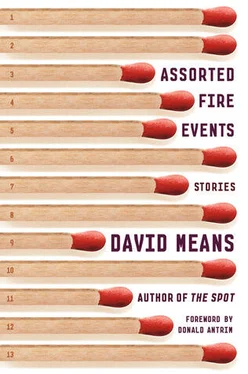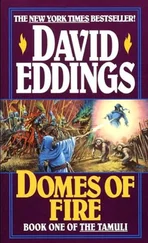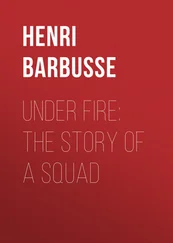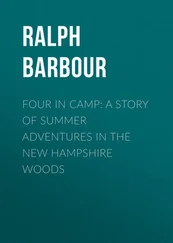David Means - Assorted Fire Events - Stories
Здесь есть возможность читать онлайн «David Means - Assorted Fire Events - Stories» весь текст электронной книги совершенно бесплатно (целиком полную версию без сокращений). В некоторых случаях можно слушать аудио, скачать через торрент в формате fb2 и присутствует краткое содержание. Год выпуска: 2012, Издательство: Faber & Faber, Жанр: Современная проза, на английском языке. Описание произведения, (предисловие) а так же отзывы посетителей доступны на портале библиотеки ЛибКат.
- Название:Assorted Fire Events: Stories
- Автор:
- Издательство:Faber & Faber
- Жанр:
- Год:2012
- ISBN:нет данных
- Рейтинг книги:4 / 5. Голосов: 1
-
Избранное:Добавить в избранное
- Отзывы:
-
Ваша оценка:
- 80
- 1
- 2
- 3
- 4
- 5
Assorted Fire Events: Stories: краткое содержание, описание и аннотация
Предлагаем к чтению аннотацию, описание, краткое содержание или предисловие (зависит от того, что написал сам автор книги «Assorted Fire Events: Stories»). Если вы не нашли необходимую информацию о книге — напишите в комментариях, мы постараемся отыскать её.
won a Los Angeles Times Book Prize, was nominated for a National Book Critics Circle Award, and received tremendous critical praise. Ranging across America, taking in a breathtaking array of voices and experiences, this story collection now stands as one of the finest of our time.
Assorted Fire Events: Stories — читать онлайн бесплатно полную книгу (весь текст) целиком
Ниже представлен текст книги, разбитый по страницам. Система сохранения места последней прочитанной страницы, позволяет с удобством читать онлайн бесплатно книгу «Assorted Fire Events: Stories», без необходимости каждый раз заново искать на чём Вы остановились. Поставьте закладку, и сможете в любой момент перейти на страницу, на которой закончили чтение.
Интервал:
Закладка:
yearning squeak while the flames devour his coat and then his skin and then his body, writhing in heat-wave distortion. No one is sure which was the distortion of the heat and which was the dog’s movement, so much like the monks doing their sit-down self-immolating dances during Nam.
One morning in Rochester, my aunt — mother of five, member of a fine upstanding family with no deep-felt hardships (apparent from outside), on the way to her job at the high school — took a can of gasoline, placed it in car, drove to a quiet cul-de-sac and poured the gas over head and body and lit herself on fire. She died a few hours later, flesh consumed. 4
The note she left was written in the first person, from the point of view of the gas can, speaking of the sloshing ride, lodged behind the driver’s seat, the floor strewn with candy bar wrappers, then being gripped tightly in her long fingers and embraced against her blue dress, carried out to the end of the street where the air was cool and fresh and smelled of the juniper bush behind them; then the relief of having its soul poured from the long corrugated spout, the air hissing through her small yellow intake valve as it rushed in to replace the fluids — that great draining piss of gas out of her belly — and the clunking kettle-drum thud as she was dropped to the side carefully, with a delicateness very much appreciated. The note she wrote mulled the trials and tribulations of life as a gas can, servicing mainly small engines of the lawn mower variety, being left out on the lawn in the hard heat of summer afternoons, on occasion being taken into the back of the boat to service the small motor, oil mixed in for that; it was a can’s life, a life of being filled, emptied, tapped and shaken, refilled and checked. The gold curl of the liquid inside, upon which floated bits of grass chaff. Always the vapors pushing up against the roof of your mouth, singing, making little arias to the instability of their bonds. 5
Those old movie newsreels of World War II flamethrowers spewing their lovely tongues into Jap-filled foxholes: long flexing membranes of combustion tearing into the bland dullness of the black and white. Lovely. Lovely.
The plot of fire is nebulous and serene, wildly fanatic and calm at the same time, trailing up curtains and along the undersides of carpet padding, taking its own sweet time and then conversely becoming diametric, logarithmic, taking big gulping gorging sweeps of the floorboards and runners — until it sings sweetly the fantastic house-burning lament, blasting out of windows and licking the roof eaves. You drive up to it stunned and bent over with anguish at the very central fact that what was once around your life — objects of so-called sentimental attachment — is now ash.
Burning things came naturally to Fenton, and he did so whenever and wherever he could. His father assured his mother that it was the natural proclivity of a boy to touch a flame to things. As a kid I did so myself, he assured her. It was a phase the boy would outgrow, he added. The rocket ship was makeshift, a couple of tubes of cardboard taped together and stuffed with wax paper (Fenton was sure that nothing burned better than wax paper), capped by a crude twisted cone of construction paper — dark blue, all jury-rigged to a small slab of plywood. It was the gas. He doused the tubing with gas and then the board and laid it near the side of the garage — in that narrow space between his garage and the neighbor’s — then doused a bit more for good measure, counting, five, four, three, two, one, touching the Bic lighter to the edge of the wood, not feeling the lick, the vibration, the uplift of flame — the small barely visible violet underside of the fume-flame touching his tube socks and gathering around the cuff of his jeans, with a combustion point higher than the hair on his ankles — flame opening to flame itself taking one big heaving pop, gulp, and then roaring up to his face, flinching back, falling forward into it, catching his jeans and his socks and up his leg before he knew what was what, and the dry wood along the garage, too; it had been a long dry summer in which the whole region was baked crisp. It was near fall anyhow, that tart dry smell holding the portents of what was going to happen on the first cold frost-snap night. It was all in a half second, until he was on fire doing the STOP, DROP, ROLL thing just as he’d been trained. (In class they had gone over it, throw the blanket over the body or if you’re alone don’t panic and run but roll on the ground.) But there wasn’t room between the two garages, and he rolled back against the neighbor’s wall and then towards the fire — screaming all the while this high, dog-whistle-pitched squeal that couldn’t be heard anyhow because, across the alley that serviced the driveways of this small Midwestern town, Mr. Jones was roaring swaths of grass with his ill-tuned Lawn Boy, drowning out the screams and the first crackles of the fire. He’d be the first to notice the smoke, first to see it, but too late because by that time both garages were engulfed. (He was hard of hearing but his eyesight was a resolute twenty-twenty.) The inferno would soon leap the garage to the porch and, before the fire trucks could arrive, take the whole side of Fenton’s house and part of the neighbor’s, too, destroying both with enough smoke damage to call them total losses on the insurance rosters.
Fenton’s skin is actually giving off smoke, a swamp misting in the early morn, crawling on all fours, looking slightly ridiculous if you were to view it impartially, as if in a movie, knowing it was an actor in a fire suit, some stunt person like a Chaplin tramp, or in blackface, fireface — really, honestly, smoking skin burning still, not able to scream now for the effort he has to put into moving away from the fire that is moving rapidly (following the soft westerly breeze) — but he can sense it licking his heels, although he can’t feel his heels because the soles of his sneakers have melted into his feet, or what remains of them; it’s a ghastly sight that no one gets to see. (He’s a latchkey kid. Usually he goes in and switches on the TV and kills a good hour before getting his books out of his backpack.) No one is there to see his heroic crawl out of the fire into the fresh air, his singed lungs gasping. When the emergency rescue guys and the fire trucks scream up to the curb he’s in the very center of the front lawn, still smoldering, like a heap of campfire residue. But the men have seen stranger sights, still-living souls with flames dancing out of their necks; people dancing fire dances with their hair going like a torch, things that defy even those whose imaginations are trained by computer animation techniques to accept anything on this strange earth; these guys in the course of fighting fires — the older ones — going into roaring farmhouses full of brittle ancient wood — have seen the fire gods make strange faces, with licking tongues. So Fenton wasn’t a strange sight to them the way he’d be to you if you were to come upon his smoking form. The percentage of his skin damaged (like that of my aunt) was given as a statistic, as if the square inches of body tissue could be charted, cubed off, like square acres of farmland in Iowa. Anyone familiar with the rudiments of such news stories — fire-damaged souls who have their skin grafted in a tortuous series of operations that are (according to many accounts) more painful than the actual original burning; bodies hovering in special flotation tanks, suspended in liquid, sponged off, the wounds oozing for months and years. For anyone familiar with such tales, the story of Fenton’s struggles to survive would be pretty routine. Like Christ, he lay in the tank with his arms out. Like Christ, he suffered for all humankind. Like Christ, he sucked into his skin and nerves the pain of the entire universe. It was a holy event. Eyes dark blue open to the ceiling tiles. His lips parted, trying to speak. Like Christ, he walked into the hot fire of hell and departed with only long purple blemishes and a face that was hard to recognize as human. People walked past that face with their eyes at the sky or their feet, knowing that to look at it would be to laugh out loud. It would be a big, blasting laugh that Fenton’s face would produce in most people, the kind you make at the circus when the clown’s dripping eyes and his goofy smile are painted over the saddest-looking, most pathetic clown-school dropout you’ve ever seen, some guy whose family has been in the circus for generations and has no way out except to keep doing what the family does; he hates the job more than life itself but keeps going and going, from Madison Square Garden shows to small county fairs. In the circus there is fire, too. It’s spun in hoops and thrown from the mouth of God.
Читать дальшеИнтервал:
Закладка:
Похожие книги на «Assorted Fire Events: Stories»
Представляем Вашему вниманию похожие книги на «Assorted Fire Events: Stories» списком для выбора. Мы отобрали схожую по названию и смыслу литературу в надежде предоставить читателям больше вариантов отыскать новые, интересные, ещё непрочитанные произведения.
Обсуждение, отзывы о книге «Assorted Fire Events: Stories» и просто собственные мнения читателей. Оставьте ваши комментарии, напишите, что Вы думаете о произведении, его смысле или главных героях. Укажите что конкретно понравилось, а что нет, и почему Вы так считаете.












